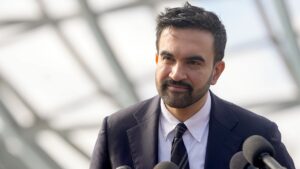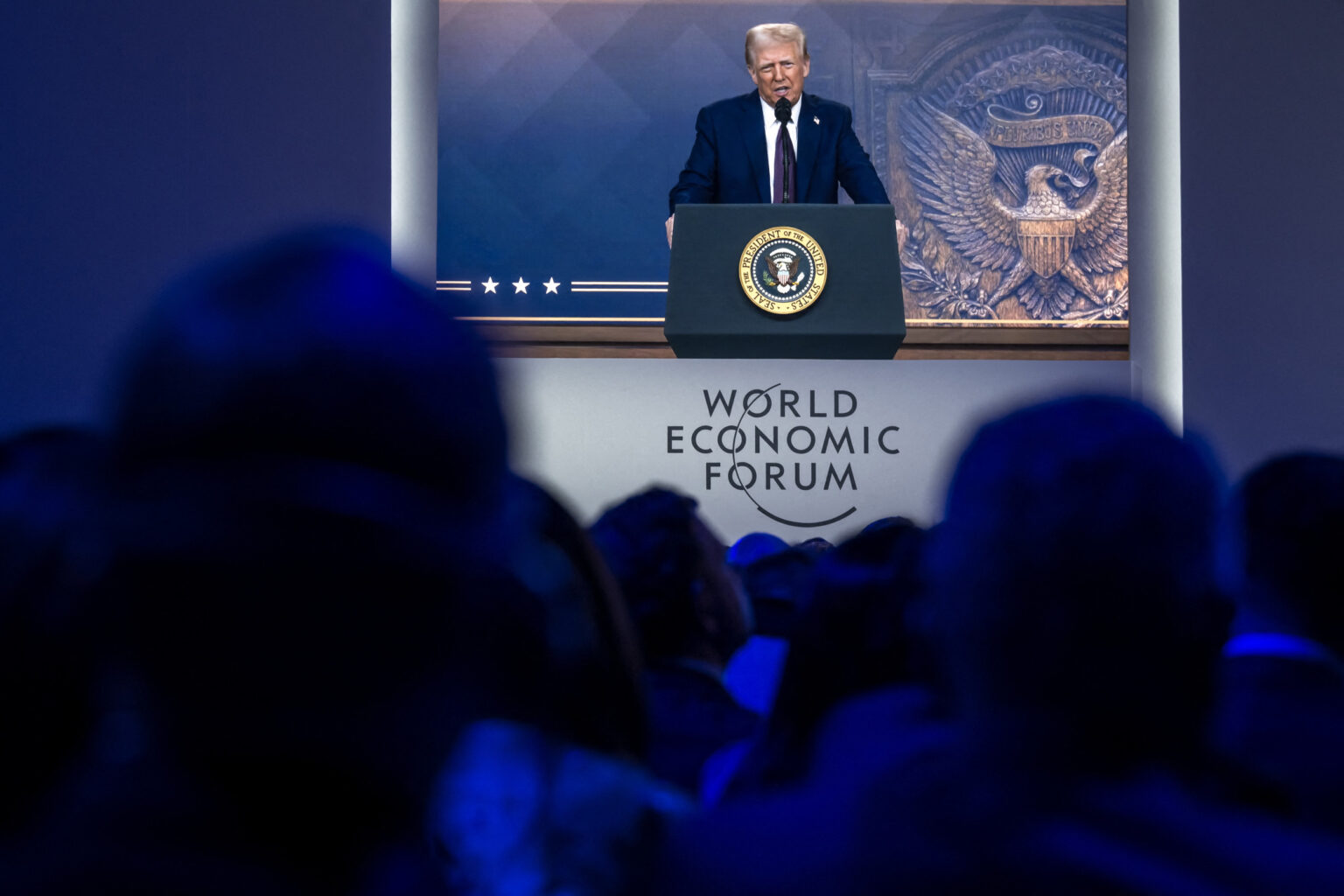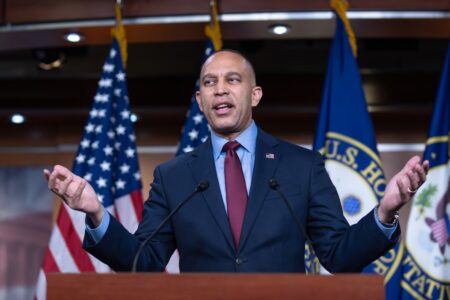Just days after taking office, President Donald Trump delivered a blunt message on climate change to global business leaders gathered at the World Economic Forum on Thursday in Davos, Switzerland.
“I terminated the ridiculous and incredibly wasteful Green New Deal, I call it the ‘Green New Scam,’ withdrew from the one-sided Paris climate accord and ended the insane and costly electric vehicle mandate,” Trump said via teleconference.
Trump’s early actions on climate change and energy were widely anticipated—he also pulled the U.S. out of the Paris Agreement in 2017 during his first presidency and promised to promote fossil fuels in his campaign. But the stark reversal in U.S. policy after four years of historic climate action is still enough to cause some whiplash for business executives trying to manage climate risks and seize clean-energy opportunities.
“It is obviously not good news that the U.S. is going to leave the Paris Agreement,” María Mendiluce, CEO of the We Mean Business Coalition, told Newsweek in a phone conversation from Davos. The coalition works with companies and nonprofits to accelerate the clean-energy transition, and Mendiluce said the lurching U.S. position is not good for business.
“Businesses like to see a lasting framework,” she said. “They’re making investments for 20, 30 years and they can’t change every four years.”
Mendiluce said it is too soon to tell what effect Trump’s policies will have on companies’ efforts to rein in greenhouse gas emissions and grow clean tech, but she said market data will be the more important factor.
“The market fundamentals show that the energy transition is unstoppable,” she said. “The companies that have made the investment in green solutions will continue to push for this.”
A financial retreat from climate goals appeared to be underway last month when some major banks including Bank of America, Citi, Goldman Sachs, JPMorgan and Wells Fargo ended their membership in the Net-Zero Banking Alliance, an organization set up by the United Nations to support climate action in lending and investment.
Opponents of climate action were quick to claim victory.
“No longer are companies easily bowing to the global elites who hope to blacklist specific industries and the workers they employ,” West Virginia Republican Representative Riley Moore said in a statement. As state treasurer in coal-heavy West Virginia, Moore had led an effort to divest from financial institutions who supported what he called “anti-fossil fuel” policies.
Mendiluce said the banking departures from the Net-Zero Banking Alliance are overblown and have more to do with recent legal action against the alliance than the banks’ underlying strategies for climate investment.
“The banks and investors will look at the economics,” she said. “These investments continue to make a lot of sense for these banks.”
Trump’s energy plan in 2025 is similar to the approach he took in his first term in office, but the energy landscape is radically different today. Renewable energy, EVs and other clean tech have exploded in growth, especially with the government loans, tax credits and other incentives in the Inflation Reduction Act (IRA) and Bipartisan Infrastructure Law.
Trump targeted the IRA in an executive order on his first day in office, instructing agencies to pause and review remaining spending under the bill. That, and previous attempts by congressional Republicans to undo the legislation, raises concerns among many clean tech and renewable energy business leaders.
The business-focused environmental nonprofit Ceres organized a day of action on Capitol Hill last month to defend the IRA with executives from roughly a dozen companies, including some well-known names such IKEA U.S., Samsung Electronics America and Hitachi Energy.
Ceres VP of Government Relations Anne Kelly said the group is not losing any members and she sees little sign of companies retreating from climate commitments.
“They’re not just going to switch on a dime because of this particular president,” Kelly told Newsweek.
A survey of investors conducted after the November election by the US Sustainable Investment Forum indicated that investors are not backing away from climate action. The survey found 73 percent of respondents said they expect the sustainable investment market to grow in 2025 and the following year.
Michele Demers is CEO of Boundless Impact Research and Analytics, which helps companies and organizations understand their environmental impact and commercialize clean technology. She said the “political noise” around environmentally minded business is a distraction but not indicative of a change in direction.
“There’s just too much economic momentum and too many investors making a lot of money for them to go back,” Demers told Newsweek.
Trump’s first term in the White House provides evidence, she said. Even with his efforts against climate action, clean energy and clean tech business grew dramatically.
That’s not to say Trump’s policies will have no effect, however. Demers said clean tech areas in early stages of development could suffer, such as some carbon dioxide removal technologies and work to cut emissions from cement and other heavy industries.
Demers said companies are also changing how they communicate about their climate goals. The label ESG—a catch-all term for environmental, social and governance—will probably not last, she said.
“ESG has had its day and it’s now going to be called something different,” she said. “But you’re still going to see sustainability policies at companies.”
Anne Kelly at Ceres agreed.
“You may see a shift in language, but that’s very different than people actually changing course or redeploying capital,” she said. “You know, what’s in a name?”
Read the full article here














